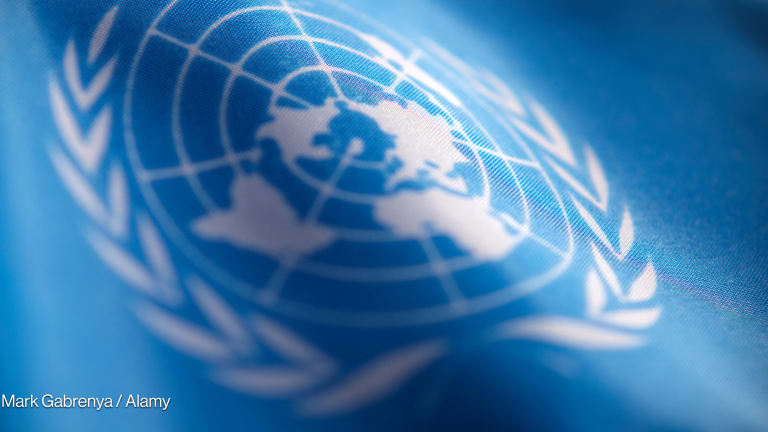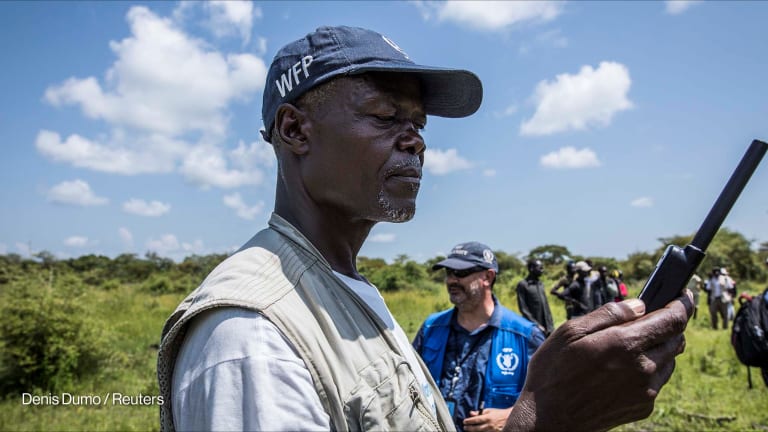
DAVOS, Switzerland — In between trips to Syria and Somalia, Mark Lowcock, the head of the United Nations Office for the Coordination of Humanitarian Affairs, was in Davos this week, speaking to the private sector about playing a stronger role in humanitarian issues, and with governments about helping meet funding needs.
Lowcock met with companies in Davos, particularly in the insurance industry, who are testing products to respond to natural disasters that offer “robust opportunities for scale,” he told Devex. OCHA and the World Bank are looking at how the Pandemic Risk Facility at the World Bank could be replicated for famine risk.
He also met with the King of Saudi Arabia to discuss an announcement made earlier this week that the Saudis and the Emirates would contribute $1.5 billion for the Yemen humanitarian crisis. Half of the $22 billion the U.N. humanitarian response plan is seeking for 2018 is for Yemen and Syria.
Lowcock was in Syria last week, the first time the U.N. emergency relief coordinator got the approval of authorities to visit. The focus was to try to establish relations and work to get access to areas where they are now unable to serve communities in need, he said. OCHA would like to work more closely with Syrian and international NGOs in Syria, but a lot relies on the assent of the Syrian authorities.
Up next for Lowcock is an interesting trip, because it’s a physical manifestation of efforts to bring the humanitarian and development sectors together to work more strategically. Lowcock will be joined by Achim Steiner, the administrator of the U.N. Development Programme, on a visit to Somalia and Ethiopia.
“We are deliberately trying to join systems,” he said, adding that bridging the gap between humanitarian response and development is one of OCHA’s priorities this year. For example, rather than trucking in water to communities in need during a crisis, the humanitarian aid can look to other solutions, including building wells, which could have ongoing development impacts as well. To that end, OCHA needs to think about how it plans to use its money and ensure that it has a development payoff.
“There are still some circumstances where humanitarian access and protection is key to uphold humanitarian principles, but we must track and recognize that in some places we can go beyond that and we need to take the opportunity where it exists,” Lowcock said.
Another priority for OCHA is financing, and as part of its restructuring, the agency will create a new humanitarian financing group. Partnerships with the private sector and greater collaboration with Islamic philanthropy are significant opportunities, as is collaboration with the World Bank and the African Development Bank, he said.
While all the reforms underway are aimed at making the humanitarian system better, it is critical that agencies find better ways to address issues and work together. OCHA is trying to play a coordination role and provide services to other agencies that “will foster identifying and responding to new problems” more quickly, which will ultimately stave off crises and reduce the cost of action.
“The humanitarian system isn’t perfect. It’s not what the world would invent if it could start from scratch, but it is effective and saves millions of lives a year and is the system member states have decided to stick with,” Lowcock said.
“The issue is how to play a coordinating role, that is facilitative, supportive, helpful, and useful to bring people together,” he said.
Read more stories from the World Economic Forum in Davos.
Search for articles
Most Read
- 1
- 2
- 3
- 4
- 5








